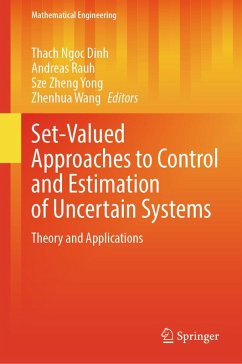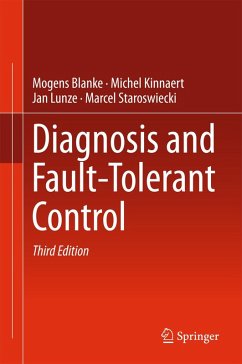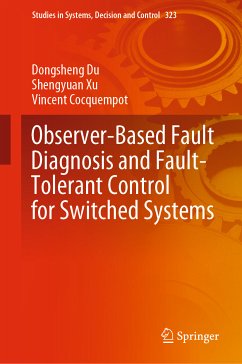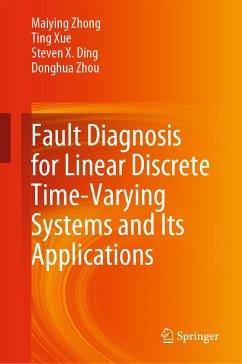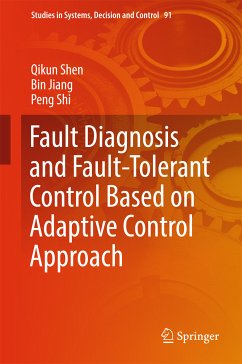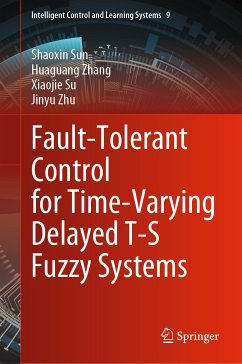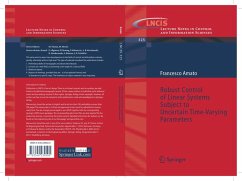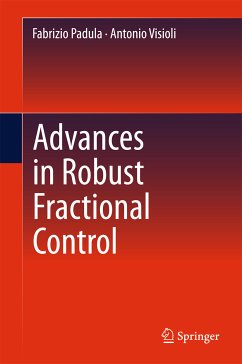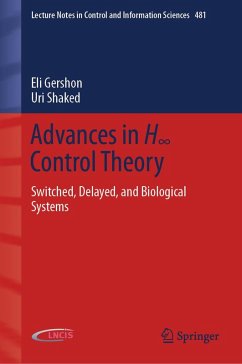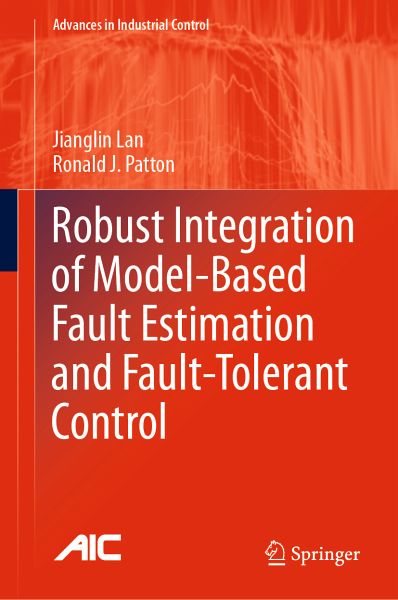
Robust Integration of Model-Based Fault Estimation and Fault-Tolerant Control (eBook, PDF)
Versandkostenfrei!
Sofort per Download lieferbar
72,95 €
inkl. MwSt.
Weitere Ausgaben:

PAYBACK Punkte
36 °P sammeln!
Robust Integration of Model-Based Fault Estimation and Fault-Tolerant Control is a systematic examination of methods used to overcome the inevitable system uncertainties arising when a fault estimation (FE) function and a fault-tolerant controller interact as they are employed together to compensate for system faults and maintain robustly acceptable system performance. It covers the important subject of robust integration of FE and FTC with the aim of guaranteeing closed-loop stability. The reader's understanding of the theory is supported by the extensive use of tutorial examples, including s...
Robust Integration of Model-Based Fault Estimation and Fault-Tolerant Control is a systematic examination of methods used to overcome the inevitable system uncertainties arising when a fault estimation (FE) function and a fault-tolerant controller interact as they are employed together to compensate for system faults and maintain robustly acceptable system performance. It covers the important subject of robust integration of FE and FTC with the aim of guaranteeing closed-loop stability. The reader's understanding of the theory is supported by the extensive use of tutorial examples, including some MATLAB®-based material available from the Springer website and by industrial-applications-based material.
The text is structured into three parts:
The strategies presented are applicable to a broad range of control problems, because in the absence of faults the FE-based FTC naturally reverts to conventional observer-based control.
The book is a useful resource for researchers and engineers working in the area of fault-tolerant control systems, and supplementary material for a graduate- or postgraduate-level course on fault diagnosis and FTC.
Advances in Industrial Control reports and encourages the transfer of technology in control engineering. The rapid development of control technology has an impact on all areas of the control discipline. The series offers an opportunity for researchers to present an extended exposition of new work in all aspects of industrial control.
The text is structured into three parts:
- Part I examines the basic concepts of FE and FTC, providing extensive insight into the importance of and challenges involved in their integration;
- Part II describes five effective strategiesfor the integration of FE and FTC: sequential, iterative, simultaneous, adaptive-decoupling, and robust decoupling; and
- Part III begins to extend the proposed strategies to nonlinear and large-scale systems and covers their application in the fields of renewable energy, robotics and networked systems.
The strategies presented are applicable to a broad range of control problems, because in the absence of faults the FE-based FTC naturally reverts to conventional observer-based control.
The book is a useful resource for researchers and engineers working in the area of fault-tolerant control systems, and supplementary material for a graduate- or postgraduate-level course on fault diagnosis and FTC.
Advances in Industrial Control reports and encourages the transfer of technology in control engineering. The rapid development of control technology has an impact on all areas of the control discipline. The series offers an opportunity for researchers to present an extended exposition of new work in all aspects of industrial control.
Dieser Download kann aus rechtlichen Gründen nur mit Rechnungsadresse in A, B, BG, CY, CZ, D, DK, EW, E, FIN, F, GR, HR, H, IRL, I, LT, L, LR, M, NL, PL, P, R, S, SLO, SK ausgeliefert werden.



